LGBT women don’t feel comfortable at Pride, new study suggests
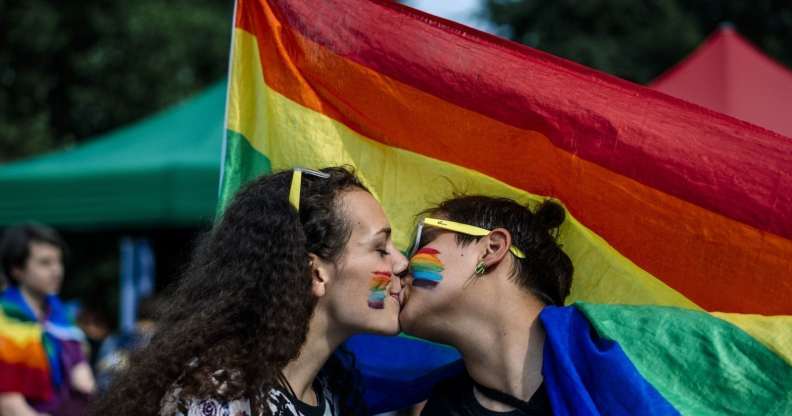
A new study has suggested that many lesbian, bisexual and queer women do not feel comfortable at Pride events.
LGBT Pride is celebrated around the world each summer, with countless events organised to celebrate and revel in diverse gender identities and sexualities.
However, according to a recent study conducted by dating app Her, the events may not be as inclusive as people would hope.
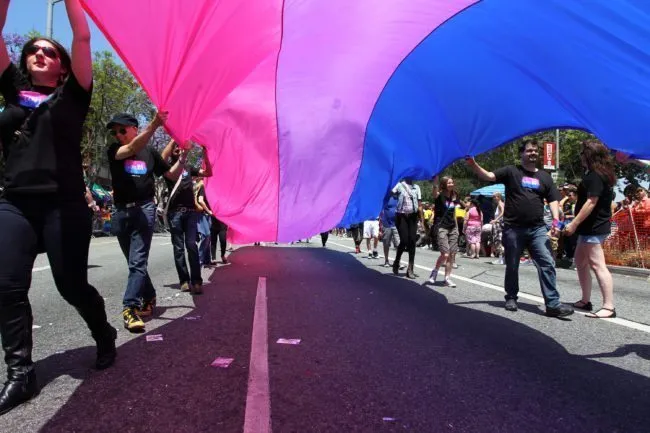
Bisexual women were some of the most likely to feel unwelcome at Pride (David McNew/Getty)
App users were asked about their attitudes towards Pride and found that 31 percent of LGBTQ women did not feel welcomed or comfortable attending.
When the results were broken down by sexuality, the study found that this discomfort was felt more by bisexual and queer women, who often face unique discrimination within the community.
43 percent of bisexual women surveyed said they do not feel comfortable at Pride events and parades.
This was echoed by women who self-identified as queer, with over half of queer respondents saying they did not feel welcomed at the events.
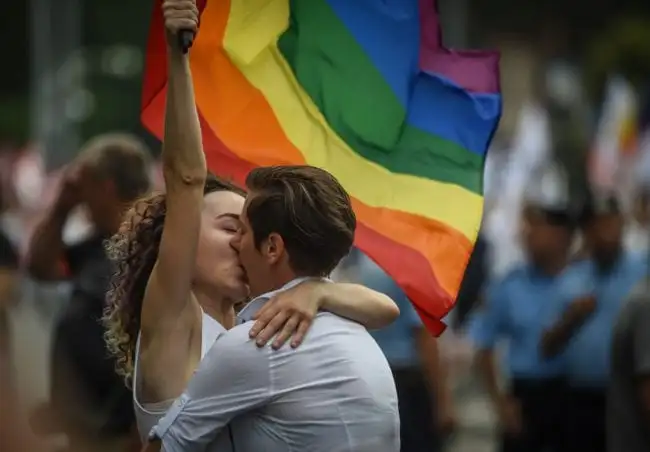
Only 40 percent of women planned to go to Pride this year (DANIEL MIHAILESCU/AFP/Getty)
When asked whether they planned to attend a Pride event this summer, 74 percent of the respondents promisingly said there was a Pride celebration local to them.
Related: Women who have sex with women apparently orgasm much, much more
However, only two-fifths of women who were able to attend a local event actually had plans to go.
The study also found that 35 percent of LGBTQ women surveyed had never been to a Pride event.
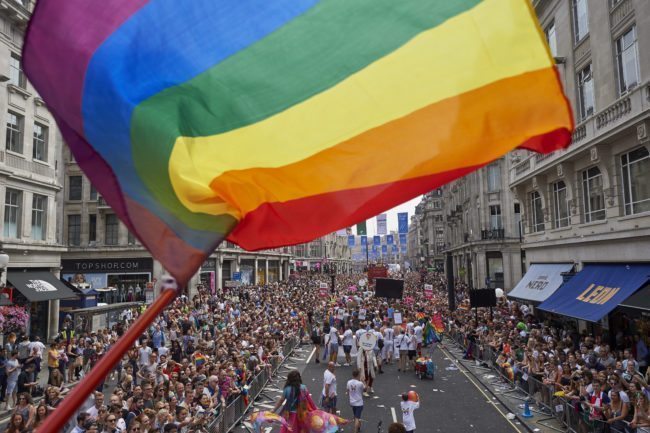
35 percent of respondents had never been to Pride (NIKLAS HALLE’N/AFP/Getty)
Barbara Galiza, head of marketing at Her, said that she believed the male-centred nature of many Pride events could impact how lesbian, bisexual and queer women felt at them.
Galiza told Broadly: “I think it’s a cycle where women will go to these events, not see many women there, and not go back a second time.”
One of the survey respondents echoed this, stating in the research: “The challenges we face as women are different than men.”
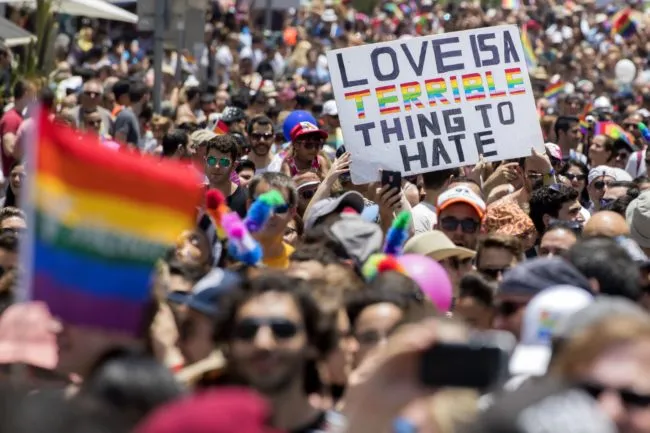
The researchers said male-centred Pride events may to be blame. (JACK GUEZ/AFP/Getty)
However, many of those surveyed still saw that Pride was an important part of the community.
One respondent said: “There’s no doubt the LGBT+ community can achieve much more if we’re together. We should also be aiming for equality within ourselves.”
Galiza added: “It was very nice to see so many women still see a big importance in Pride, but disappointing very few considered going themselves.”

